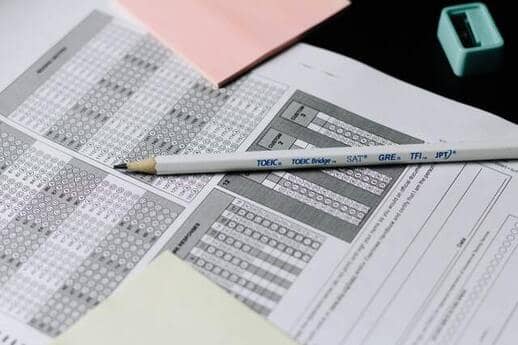Many of us choose to attend college years after we graduate from high school. Our reasons are varied and include:
- Obtaining a degree to move forwards in an existing career path
- To start a new career path
- Because we were unable to attend at school-leaving age because of reasons like lack of funding, but can now attend college as an adult
Whatever the reason, we often have skills we’ve learned along the way that gives us a head start on college courses. The good news is that your learning ‘in the field’ can be translated into college credit via prior learning assessments.
In this guide, we’ll discuss that prior learning assessments are, what kind of experience counts, and how you can earn college credit for experience.
What Are Prior Learning Assessments?
Colleges use prior learning assessments to assess the credit value of work experience, non-degree programs, as well as programs completed outside of the traditional college and university. The basic structure is that the individual puts together a portfolio that might include an outline of relevant knowledge in the subject area, a resume and transcripts or evidence of program completion. The college then decides how many college credits this experience is worth.
Prior learning assessments are useful because:
- They make it easier for learners to graduate college earlier, easier and more cheaply.
- They can help to avoid unnecessary modules on subjects you’re already well-versed in.
It’s important to present your experience properly, which means explaining clearly why it constitutes college-level learning. Only knowledge and experience that demonstrably equals the level of expertise you gain in a college degree will be accepted, so your pitch matters!

How Do Prior Learning Assessments Help Students?
Two things that typically put prospective students off college are the cost of study and the time it takes to earn a degree. PLAs can help you save on both.
A study by CAEL (Council for Adult and Experiential Learning) and WICHE (Western Interstate Commission for Higher Education) found that the financial savings for students using PLAs were:
- ~$1,500 at 2-year public institutions
- ~$3,800 at 4-year public institutions
- ~$10,200 at 4-year private nonprofit institutions
- ~$6,100 at for-profit institutions
Beyond this, the study estimates that students saved between 9-14 months of study time compared to students not using PLAs.
How Do You Apply for Prior Learning Assessments?
There are several methods of applying for PLA credit:
- Portfolio-based assessment. This is perhaps the most common method. You first find an institution that offers PLA for your chosen degree program. This institution will typically assign you a mentor who will spend a semester helping you build a case for why your experience and knowledge are equal to college-level learning. This is your portfolio.
- Through ACE guides. The American Council on Education (ACE) can help provide information to build a recommendation to a PLA-accepting college based on your experience.
- CLEP examination. This is a recognized test of college-level knowledge that you may take nationwide.
- Challenge exams. Some colleges offer bespoke challenge exams that will test your knowledge in an area. Colleges can accept these exams in place of you completing study modules.
- Evaluation of local training. Some non-collegiate institutions offer evaluations of your learning outside of college to verify your level of knowledge.

What Qualifies for Prior Learning Assessments?
Below we’ll cover some of the major ways that you earn college credit for experience. Note that this list isn’t exhaustive: any form of experience may be considered. However, these are some of the most common fields considered in prior learning assessments.
1. Full-Time or Part-Time Jobs
As we progress in our careers, we take on a great deal of knowledge. Especially in fields where professional experience is considered valuable as formal study (such as sales management), individuals may be promoted to roles that help them learn some of the same skills they would obtain through a college degree.
Alternatively, industries like software development are heavily populated by self-taught programmers without a college degree. The experience gained in professional settings is often equal to or greater than the level taught at college, and this kind of experience would be considered valuable in prior learning assessments.
2. Personal Research Projects
Not everybody studies because they have deadlines! Some people conduct high-level studies purely out of passion. This is a great recommendation to a college regarding your commitment. It may also demonstrate that you already have the subject knowledge and research skills that a college degree teaches.
This includes experience such as writing expert articles for publications and amateur essay-writing (e.g., for a blog). Suppose the level of work you provide in your portfolio shows in-depth subject knowledge and solid research methodology. In that case, there’s a strong chance a college will consider it for additional credits.
3. Training Programs
Our careers sometimes involve training programs that teach the same skillsets as certain college degrees. For example, if you’ve risen from being a shop floor worker to a lower management role in a retail or hospitality setting, you may well have had to complete months of training in areas like:
- Staff management
- Banking & finance
- Sales & marketing initiatives
- Customer relations
- Loss prevention
These are all areas covered in a management degree. Suppose you decided to pursue a management degree, even to transition to a completely different role from your current setting. In that case, you may have a head start that a college would admit in prior learning assessments.

4. Volunteer Work
Volunteer work often lends valuable insight in many areas. This could be the area you were volunteering in (for example, volunteering in a library would give you relevant experience for a degree in Library Management) or experience in fundraising and budgeting if you worked for a charity. The knowledge you acquire when you volunteer or participate in a service learning experience may be equal to the college level in some management degrees and may well be considered by colleges.
5. Artistic Pursuits
Of course, a strong art portfolio will help you out with an application for artistic degrees such as creative writing. However, experience in artistic or cultural sectors can be considered as extra credit. For example, if you’ve worked in a museum or art gallery for years in a relevant area, you may well be ahead of the foundation of an Art History major.
6. Military Training
Courses that accord high priority to skills such as leadership frequently consider military training in prior learning assessments. Other skills that can be learned through military training, such as engineering or mechanical knowledge, may also be considered.
Conclusion: Prior Learning Assessments
The fact that you can earn college credit for experience is a wonderful part of the education system, and it’s to be hoped that more and more institutions will adopt this common-sense approach in the future. Taking a degree where you feel you have to slog through things you’ve known for years is demotivating to adult learners, so we recommend embracing this opportunity to have your knowledge and experience valued by colleges. In addition to saving time, prior learning assessments will help you save money on college.
For more information on how you can save money on college or additional financial advice, check out our financial planning blog.
Get started on your pathway to a college degree by searching through the following list of colleges and universities offering prior learning assessments.
Colleges Offering PLAs

Southern New Hampshire University
SNHU’s Prior Learning Assessment program recognizes the competencies you have gained through life experiences, military service, and work history. It allows you to earn some college credit towards SNHU bachelor’s and master’s degrees without classroom courses or traditional coursework.

Capella University
Capella University’s Prior Learning Assessment program is designed to provide an opportunity for people who have acquired knowledge outside the traditional academic setting to demonstrate that knowledge through a process of assessment and validation. Capella’s PLA program allows degree-seeking students to earn credit for prior life and work experience.

Excelsior College
Excelsior College offers a Prior Learning Assessment program that can help you graduate earlier and faster. This process can accelerate your degree completion by leveraging your previous knowledge and skills to earn credits toward your degree.

Oregon State University
The Oregon State University Prior Learning Assessment program helps you earn credit for knowledge, skills and experience you already have. This is done by evaluating previously completed learning experiences rather than waiting to complete the learning in the future.



